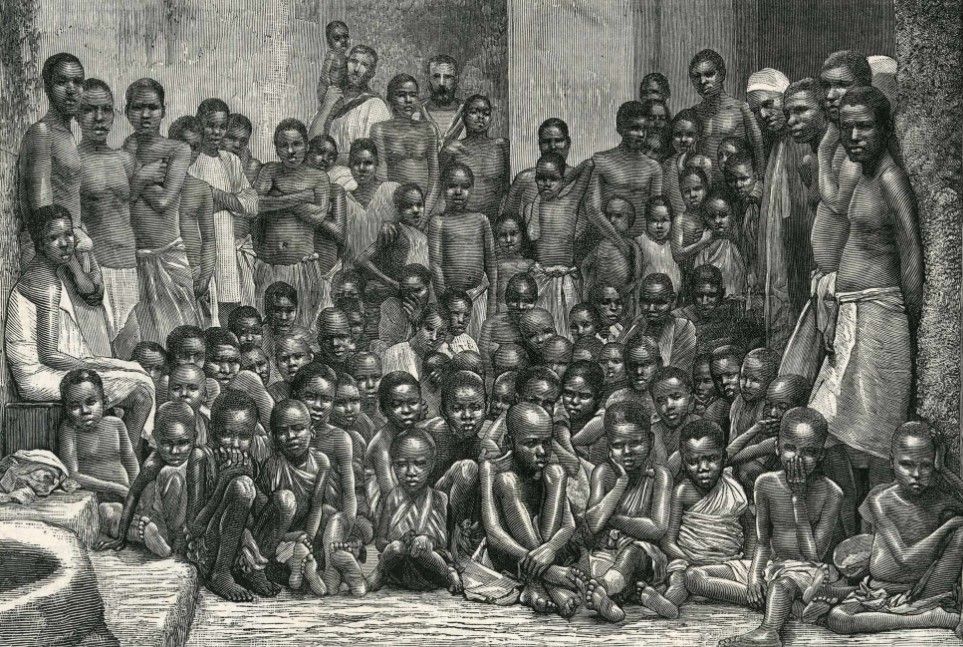The international slave trade of the 16th and 17th centuries consisted of 12.5 million enslaved people shipped from Africa to the Americas. Through the Middle Passage, these enslaved people suffered greatly on poorly structured slave ships and had to endure overcrowding, disease, torture, and bad weather. As they arrived on the coasts of South America, they were forced to work on plantations in even worse conditions. They had to survive unsanitary conditions, disease, rape, inadequate nutrition, and unrelenting hard labour.
While the history of the slave trade is well documented, the complicated history of the participation of African rulers and traders in it is often under discussed or repressed. In the early construction of the slave trade, Europeans were not capable of entering the interior of West and Central Africa in order to capture African people. They relied on the collaboration and willingness of African rulers, traders, and henchmen to sustain the slave trade. They stayed on the coastlines, relying on middlemen to bring captives to them.
Historians have explored a number of possible explanations to the continued African participation in the slave trade. Some say Europeans and African rulers were exploiting an already existing system of small-scale slavery amongst indigenous Africans. This system contained prisoners of war, criminals and those who could not pay off their debts. These people were deemed disposable and a threat to the social order.
Other historians have argued that slavery became an integral part of the burgeoning economies of Senegal, Gambia, Congo, Zambia, Nigeria, and Tanzania. In exchange for enslaved people, African rulers gained European goods and firearms. African traders collected substantial royalties. The pursuit was profit.
Some scholars have claimed that the slave trade provided a solution to social and political problems. Unlike Europe, Central and West Africa consisted of vast, diverse empires and populations. Cultural and ethnic divisions acutely divided the way of life. This led to frequent local clashes in the pursuit of dominance and power. The Benin empire sold enslaved people to Europeans when it was expanding and fighting in many conflicts. Still, many African kingdoms and people tried to resist. The King of Kongo, Afonso I, attempted to stop the slave trade by writing a letter to the Portuguese king, asking him to forbid Portuguese traders from participation but his request fell on deaf ears. Many villages and towns constructed barricades and warning systems to starve off attacks from middlemen and rival ethnic groups.
Those who are aware of their lineage’s involvement in the slave trade react differently. Adaobi Tricia Nwaubani has said that her great grandfather, Nwaubani Ogogo Oriaku, an Igbo slaver trader, is well respected and revered by most people in her region. Yunus Mohammed Rafiq has stated that although his relatives speak highly of their great-great-great grandfather, Mwarukere, who raided Tanzanian villages and sold captives to Arab merchants, they expunged his name from family documents after Tanzania gained independence from British colonial rule.
Wrestling with Africa’s role in the devasting slave trade is complex. On one hand, using 21 century moral standards to examine a practice that was widely normalized in earlier times often feels reductive. Most of the perpetrators made decisions that they thought would ensure their continued survival yet one cannot ignore the suffering of separated families, of captured victims who had to endure inhumane conditions of slavery, the death toll of Africans who were sold by their own people for power and profit. What is clear is that it is imperative that Africans acknowledge their flawed past in order to fully heal the wounds.









